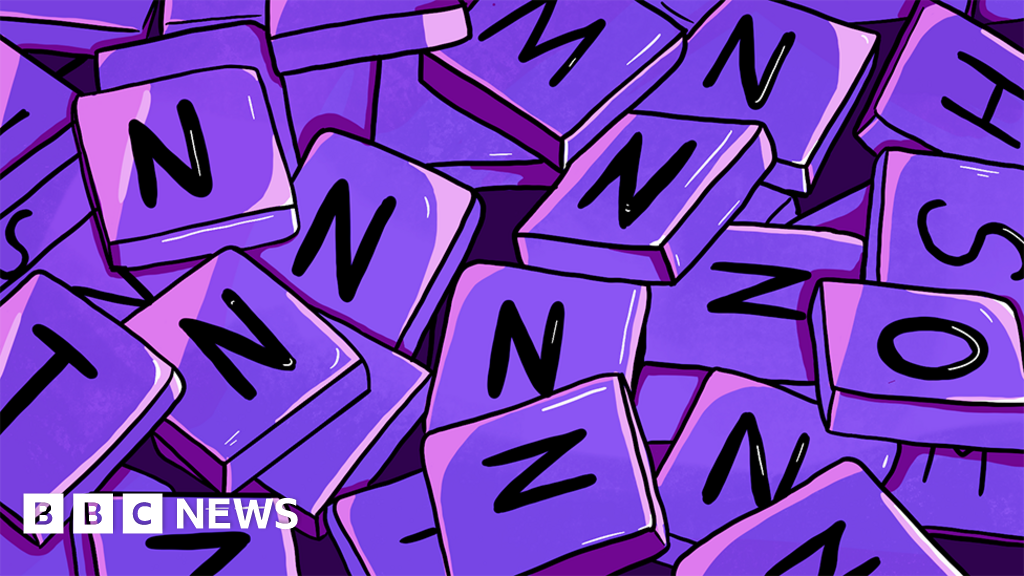Why Mexican Can Say The N-Word: A Comprehensive Exploration
Language and its usage are deeply rooted in culture, history, and identity. The question of why Mexican individuals can say the N-word has sparked debates, discussions, and curiosity worldwide. This topic delves into the complexities of cultural appropriation, historical context, and social dynamics that shape language use in diverse communities. Understanding this phenomenon requires examining the nuances of identity, race, and cultural exchange.
While the N-word carries a heavy historical burden rooted in racism and oppression, its usage varies across different cultural and ethnic groups. Mexican individuals and other Latinx communities have engaged in discussions about the appropriateness and implications of using this word. This article aims to explore the reasons behind this phenomenon while providing a balanced perspective on the issue.
By the end of this article, you will gain a deeper understanding of the cultural, historical, and social factors that influence language usage within Mexican and Latinx communities. This exploration will also shed light on the broader implications of language and identity in multicultural societies.
Read also:Ally Sheedy A Comprehensive Look At Her Life Career And Legacy
Table of Contents
- Historical Context of the N-Word
- Cultural Appropriation and Language
- Mexican Community and the N-Word
- Identity and Expression
- Social Dynamics and Peer Influence
- Media Representation and Influence
- Legal and Ethical Considerations
- Community Perspective and Voices
- Cross-Cultural Dialogue and Understanding
- Conclusion
Historical Context of the N-Word
The N-word has a dark and painful history, originating from racist ideologies and practices that dehumanized Black individuals. It was used as a tool of oppression during slavery, segregation, and systemic racism in the United States. Over time, the word became a symbol of racial hatred and discrimination. However, within certain Black communities, the N-word has been reclaimed as a term of empowerment and solidarity.
Origins and Evolution
The origins of the N-word can be traced back to the transatlantic slave trade, where it was used to demean and devalue African slaves. As society evolved, the word persisted as a reminder of racial injustice. In recent decades, some Black artists and activists have reclaimed the word, transforming it into a tool for self-expression and cultural identity.
For Mexican and Latinx communities, exposure to this word often comes through media, music, and social interactions. While the historical context remains unchanged, the interpretation and usage may differ based on cultural perspectives.
Cultural Appropriation and Language
Cultural appropriation refers to the adoption or use of elements from one culture by members of another culture, often without proper understanding or respect. In the context of language, cultural appropriation can lead to misunderstandings and conflicts, especially when sensitive terms like the N-word are involved.
Boundaries and Respect
- Understanding the boundaries of language use is crucial to avoid offending others.
- Respect for cultural differences and historical contexts should guide language choices.
- Engaging in open dialogue about cultural appropriation can foster mutual understanding and respect.
Mexican individuals who use the N-word may do so without fully grasping its historical significance. This highlights the importance of education and awareness in promoting respectful cultural exchanges.
Mexican Community and the N-Word
Within the Mexican community, the use of the N-word varies depending on factors such as generational differences, geographic location, and exposure to Black culture. Some Mexican individuals may use the word in jest or as part of their social interactions, while others may avoid it altogether due to its offensive nature.
Read also:Is Yoona Married Unveiling The Truth Behind The Rumors And Her Life
Regional Differences
Regional differences play a significant role in shaping language use within the Mexican community. Urban areas with diverse populations may witness more frequent usage of the N-word, while rural areas may be less exposed to such language. These differences underscore the complexity of language dynamics in multicultural societies.
Identity and Expression
Language serves as a powerful tool for expressing identity and belonging. For some Mexican individuals, using the N-word may be a way to connect with Black culture or assert their multicultural identity. However, this practice can also lead to accusations of cultural insensitivity or ignorance.
Empowerment vs. Appropriation
The line between empowerment and appropriation is often blurred when it comes to language use. While some argue that using the N-word is a form of cultural appreciation, others view it as a disrespectful act. Balancing these perspectives requires a nuanced understanding of cultural dynamics and historical context.
Social Dynamics and Peer Influence
Social dynamics and peer influence significantly impact language use among Mexican individuals. Younger generations, in particular, may be more likely to adopt language trends popularized by media and music. This influence can lead to the normalization of certain words, including the N-word, within specific social circles.
Peer Pressure and Acceptance
- Peer pressure can encourage the use of the N-word as a means of gaining acceptance or fitting in.
- Acceptance of diverse language use within social groups can create a sense of belonging.
- Challenging inappropriate language use can promote healthier social dynamics.
Addressing the role of social dynamics in language use requires fostering open conversations about respect and inclusivity.
Media Representation and Influence
Media plays a crucial role in shaping perceptions and attitudes toward language use. Movies, music, and social media platforms often feature the N-word, influencing how different communities interpret and engage with it. Mexican individuals exposed to these media forms may adopt similar language patterns without fully understanding the implications.
Positive and Negative Influences
While media can promote cross-cultural understanding, it can also perpetuate stereotypes and inappropriate language use. Encouraging responsible media consumption can help mitigate negative influences and promote respectful cultural exchanges.
Legal and Ethical Considerations
From a legal standpoint, using the N-word may not always result in direct consequences, but it can have significant ethical implications. Promoting respectful language use aligns with broader efforts to combat racism and discrimination in society.
Promoting Respectful Communication
- Encouraging respectful communication fosters inclusive environments.
- Addressing offensive language use can lead to positive behavioral changes.
- Legal frameworks can support efforts to combat hate speech and discrimination.
By prioritizing ethical considerations, individuals and communities can contribute to a more harmonious and respectful society.
Community Perspective and Voices
Understanding the perspectives of Mexican and Latinx communities is essential to addressing the complexities of language use. Community voices provide valuable insights into the reasons behind the adoption of certain words and the potential impact of such choices.
Voices from the Community
Interviews and surveys conducted within Mexican communities reveal a range of opinions on the use of the N-word. Some individuals emphasize the importance of cultural sensitivity, while others highlight the need for open dialogue and education.
Cross-Cultural Dialogue and Understanding
Promoting cross-cultural dialogue is key to fostering understanding and respect between different communities. By engaging in open and honest conversations, individuals can gain a deeper appreciation for the complexities of language and identity.
Building Bridges Through Communication
- Encouraging dialogue between Mexican and Black communities can promote mutual understanding.
- Education and awareness campaigns can address misconceptions and promote respectful language use.
- Collaborative efforts can strengthen relationships between diverse cultural groups.
Through meaningful conversations, communities can work together to create a more inclusive and respectful society.
Conclusion
The question of why Mexican individuals can say the N-word is a multifaceted issue that requires examining historical, cultural, and social factors. While the N-word carries a heavy historical burden, its usage within Mexican and Latinx communities reflects broader dynamics of identity, expression, and cultural exchange. By promoting education, awareness, and respectful dialogue, society can address these complexities and foster greater understanding between diverse groups.
We invite you to share your thoughts and experiences in the comments section below. Your feedback and insights can contribute to meaningful discussions and positive change. Additionally, explore other articles on our website to deepen your understanding of language, culture, and identity.

